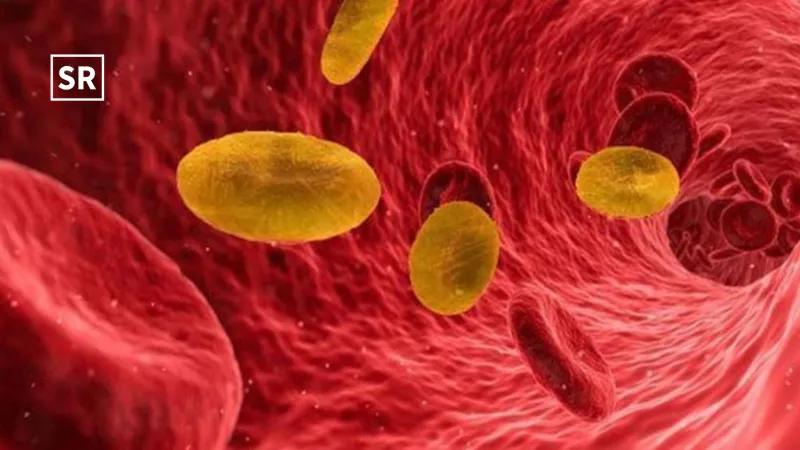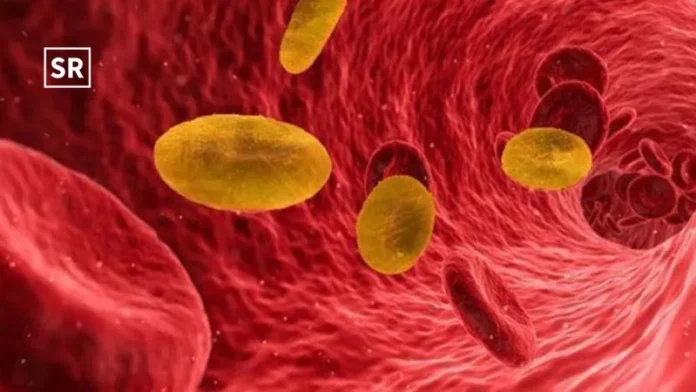
Table of Contents
Introduction
Blood is the life force that courses through every human body. While most people are familiar with the common blood groups—A, B, AB, and O—there exists a blood type so rare that it’s been dubbed “Golden Blood.”
This type, known scientifically as Rh-null, is not just rare; it is extraordinarily unique, with fewer than 50 documented cases worldwide since its discovery in 1961.
Golden Blood isn’t just a medical curiosity—it’s a critical key in the world of transfusion medicine. It holds life-saving potential for people with rare blood types and presents unique challenges and opportunities for researchers, blood banks, and recipients alike.
What is Golden Blood?
Golden Blood refers to the Rh-null blood type, meaning the blood lacks all 61 antigens in the Rh (Rhesus) blood group system.
To understand why that matters, let’s quickly look at how blood types are classified:
- ABO system: Determines whether you are type A, B, AB, or O based on specific antigens.
- Rh system: Determines whether you are Rh-positive or Rh-negative based on the presence or absence of the D antigen, one of many Rh antigens.
But Rh-null blood lacks all Rh antigens, not just the D antigen. This is incredibly rare and carries both risks and extraordinary usefulness.
How Rare is It?
Fewer than 50 individuals worldwide have been identified with Rh-null blood. Most of these cases have been found in:
- The Middle East, particularly in families with a high degree of consanguinity (inter-family marriage).
- Some isolated cases are in Europe, India, and South America.
Because of this scarcity, Golden Blood donors are tracked globally and often called upon to help save the lives of other rare blood recipients—even across continents.

Why is it Called “Golden Blood”?
The term “Golden Blood” was coined due to:
Its rarity – It is perhaps the rarest blood type known to modern medicine.
Its value in transfusion medicine – Rh-null blood can be transfused to anyone with rare Rh blood types, especially those with Rh deficiencies or antibodies against common Rh antigens.
Its critical medical significance – It’s often the only compatible blood type for people with extremely rare Rh profiles.
So, the “golden” part is metaphorical—representing both its rarity and priceless value in certain life-or-death medical situations.
Genetic Basis and Inheritance
Golden Blood is inherited recessively, meaning both parents must carry a rare genetic mutation. Specifically, the RHAG gene (Rhesus-associated glycoprotein) and other RH genes (such as RHD and RHCE) are involved.
For a child to be born with Rh-null blood:
- Each parent must pass on a mutated version of the gene.
- There is a 1 in 8 chance of two carriers producing a child with Rh-null blood.
Because the genes responsible are so rare, this usually happens in closed or small gene pools, increasing the likelihood of two carriers mating (often within families or isolated populations).
Medical Implications of Golden Blood
Risks to the Individual
People with Rh-null blood can live everyday, healthy lives, but they are more vulnerable to:
- Hemolytic anaemia: Rh proteins help keep red blood cells stable. Without them, the cells may be more fragile and prone to destruction.
- Severe transfusion reactions: Since they lack all Rh antigens, any transfusion other than Rh-null blood is incompatible.
Pregnancy Risks
Just as Rh incompatibility between a mother and fetus can cause hemolytic disease in the newborn, Rh-null women face similar or even heightened risks during pregnancy, especially if the baby inherits any Rh antigens from the father.
Blood Donations and Global Coordination
Due to the extreme rarity and importance of Rh-null blood, there is a global registry of Rh-null donors, maintained and coordinated by blood organizations and health authorities like:
- The International Rare Donor Panel (IRDP).
- WHO-coordinated national blood banks in various countries.
- Specialized transfusion services, such as those in the UK, France, and Australia.
Often, Rh-null blood must be flown across borders, kept under tightly controlled conditions, and delivered only in emergency or critical cases. Some donors are even asked to store autologous blood (donate for themselves) in case they ever require surgery or emergency transfusion.
Stories of Rh-null Donors
One of the most famous Rh-null donors is an anonymous man from Switzerland, sometimes referred to as “the man with the golden arm.” He donated blood over 140 times his contributions, helping save lives globally. Despite his identity being protected his commitment and generosity have made him a quiet hero in the medical world.
Another well-documented case involved a young child in India whose blood type baffled doctors until extensive genetic testing revealed Rh-null. The child is now part of an international tracking system for rare blood donors.
Conclusion
Golden Blood, or Rh-null, is a medical marvel—stunningly rare, biologically fascinating and critically important. It reveals the intricacies of human genetics, the interconnectedness of global healthcare systems, and the power of individuals to save lives through something as simple and profound as donating blood.
While science continues to advance in gene therapy and blood alternatives, the value of Rh-null blood—and the generosity of its donors—remains unmatched. They are, quite literally, the golden few.
FAQS
What is Golden Blood?
Golden Blood is the nickname for the Rh-null blood type, the rarest blood type in the world. It lacks all 61 antigens of the Rh (Rhesus) blood group system.
How rare is Golden Blood?
Exceptionally rare. Since its discovery in 1961, fewer than 50 people have been identified with Rh-null blood worldwide.
Can Golden Blood be given to anyone?
No. Golden Blood can only be given to people who lack Rh antigens, usually other Rh-null individuals. However, it is often used as an emergency universal Rh donor in very rare cases.





